With the first key date of the International Olympic Committee’s (IOC) evaluation process only 2 weeks ahead, all Taekwondo family members should be aware of the criteria that the Olympic governing body will use in order to decide which sports will remain as part of its Program after Rio 2016 and what is the current situation of our Sport taking into account each of these parameters.
As you may know, the IOC has decided to introduce a new regulation system as of 2020 that will cut the current number of core sports (26) to 25, which means that one of the current Olympic sports will lose its privileged position. A situation that Taekwondo and the rest of core sports are not willing to experience. What will the decision of the IOC be based on? When will we know about the Olympic future of our sport? WTM will try to clarify the key points of such a crucial process.
Dates to remember
Everything is set to start between the 12th and 13th of February in Lausanne (Switzerland). There is where the Olympic Program Comission, led by Italy’s senior IOC member Franco Carraro, will present a report informing the Executive Board with the core sport they suggest to cut from the 26 current ones.
After this first meeting, the OPC will propose the list of eligible sports to add in 2020 to the Executive Board during the SportAccord Convention, which will be held in Saint Petersburg (Russia) between the 26th and the 31st of May.
Both proposals will have to be officially approved by simple majority at the 125th IOC Session, scheduled for the 7th of September in Buenos Aires (Argentina). The election will be made by the assembled active IOC members (excluding honorary and honor members), each possessing one vote.
International Olympic Committee Head Office in Lausanne, Switzerland
The criteria of IOC’s evaluation process
The International Olympic Committee will base all its decisions regarding the core sports selection on the following criteria:
– Universality of the sport at all levels: An Olympic sport must be truly global, offering equal opportunities to the population of a vast number of countries worldwide.
– Media exposure: An Olympic sport needs to be followed for public in general and has to be able to catch TV’s interest.
– Good governance: The International Federation of an Olympic sport must respect the IOC Charter and the autonomy of the Olympic movement in all its actions.
Does Taekwondo meet all the IOC’s criteria? The World Taekwondo Federation believes our sport has an average level on an overall evaluation. “The WTF has made a lot of progress during the recent years and has plans to further progress in the future. We believe that there will be an evaluation of all sports after each Olympic Games and that the required level to remain in the Program will raise each time, as we we will face a tough competition from new sports that we’ll force us to get better every year”, states Jean-Marie Ayer, Secretary General of the WTF. “This process will never end and we think that’s how it should be. After all, it’s part of Taekwondo’s spirit to improve continuously, so if we believe that we’re currently at an average level, our objective should be to raise well above the average in the future”, concluded Ayer.
Taekwondo’s universality
Becoming more global necessarily means to expand your presence all around the world. The WTF is aware of this principle and is working hard on promoting Taekwondo in every single country worldwide, having already reached 204 Member National Associations -experiencing a more than 30% increase since year 2000- and becoming one of the biggest International Sports Federation. Over 70% of these MNA’s can be considered as ‘active’ ones, as no less than 143 of them participated in Olympic qualifying. Another example of this growth is the fact that the 15 Championships organized by the WTF during 2012 were held in 14 different countries around the world.
In the London 2012 Olympics, the Taekwondo competition shared out 32 medals in total, which were won by athletes from 22 different nations, including smaller sporting countries such as Mali, Chinese Taipei and Afghanistan. Our sport’s competition was also the one in which Gabon, thanks to Anthony Obame’s magnificent performance, won its first Olympic medal ever. Turkey and Argentina also clinched their first Olympic gold in London through Tazegul and Crismanich. These means Taekwondo helps creating real Olympic icons for smaller countries – Rohullah Nikpai (Afghanistan), Anthony Obame (Gabon), Servat Tazegul (Turkey).
We also have to mention the fact that 11 of the Opening Ceremony flag-bearers at London 2012 were Taekwondo athletes, which was proportionally the highest representation of any sport.
Pictures of the 11 Taekwondo athletes that were flag-bearers of their country during London 2012´s opening ceremony
All these advances have lead to a huge boom in Taekwondo’s uptake globally: WTF’s website had more than 250,000 daily page views during London 2012 and its profile has recently broken the 35,000 fans barrier on Facebook. This boom has been particularly patent in the UK, where the medallists of London 2012 have become celebrities, giving Taekwondo a great profile in the country. As a proof of this grow, GB Taekwondo announced that there was a 20% increase in the number of memberships and a 50% increase in participation within the UK in 2012. Taekwondo has also strongly settled down in Africa, where it has become the second most popular sport only after football.
Taekwondo’s media exposure
There’s no doubt about the enthusiasm that Taekwondo is able to awake in the audience. The best example for this statement is the atmosphere created during the London 2012 Olympics’ Taekwondo competition, where the 6,000 seats of the ExCel Centre were filled during the 4 days of competition. The electronic scoring and the application of the new rules approved by the WTF also made it easier for new fans to pick up the functioning of our sport and get excited about it.
Regarding the TV audience, the WTF has a plan to transform our sport into a more interesting entertainment for broadcasters: the WTF Taekwondo Grand Prix Series. This project, which was officially approved last year and will become a reality in 2014, will initially feature four stages in four continents, with 256 of the world’s top players set to participate, and the top eight men and women going on to compete in an annual Grand Prix Final.
Test events will be taking place this year and are part of WTF’s quest to give athletes better exposure and raise the standard of competition in between Olympic Games and World Championships.
“The Olympic Games in London triggered a surge in international interest in taekwondo – there is now a real appetite for more regular top-class taekwondo on the global stage,” said WTF President Chungwon Choue. “The WTF World Taekwondo Grand Prix Series is an excellent opportunity for athletes to take part in an international competition of this magnitude in between Olympic Games and World Championships. It will allow the sport greater media exposure and the athletes more of a public voice”, added Choue.
“We see it as a virtuous circle: higher quality, higher profile competitions will help us deliver better return on investment for existing sponsors and attract new ones; more sponsorship revenue will help us to continue raising the quality and profile of our competitions, and so on”, stated SG Jean-Marie Ayer.
Rohullah Nikpai (AFG) aims a kick at David Boui (CAF) during their bombat at London 2012
WTF’s good governance
The WTF has assumed the respect to the IOC Charter and to the autonomy of the Olympic movement as its own values and will continue to do so as a proof of Taekwondo’s commitment with the Olympic spirit worldwide.
An example of this intention is last December’s incident with the Indian Taekwondo Federation. The World Taekwondo Federation (WTF) aligned itself with the International Olympic Committee (IOC), who had previously suspended the Indian Olympic Association (IOA) for not respecting the IOC Charter and the autonomy of the Olympic movement, and decided to deprive the Indian Taekwondo Team from participating in all WTF sanctioned events until the IOA has been officially readmitted by the IOC.
Jean-Marie Ayer, Secretary General of the World Taekwondo Federation, exposed WTF’s reasons for such an important action: “The WTF takes our responsibility to the Olympic Movement very seriously and we are 100% committed to transparent governance at every level of our sport. We demand the same values of every single one of our MNAs and we are not afraid to take decisive steps to ensure that Taekwondo is associated with fair play and respect all over the world”.
Other positive factors
First of all, it must be stressed that the IOC’s decision will not be based on a sum of the grades that every sport has achieved on each criteria. Other factors such as the political and financial influences will also play their role. Therefore, in addition to the three main criteria, there are some other really positive aspects to be optimistic about Taekwondo’s Olympic future. However, that does not mean that we must now be complacent and satisfied with our sport’s achievements. We’ll explain all of these positive factors in detail in next week’s chapter.
Stay connected to WTM to keep up to date with the Olympic process!
WTM
Pau Aguilar
© World Taekwon Media
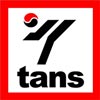




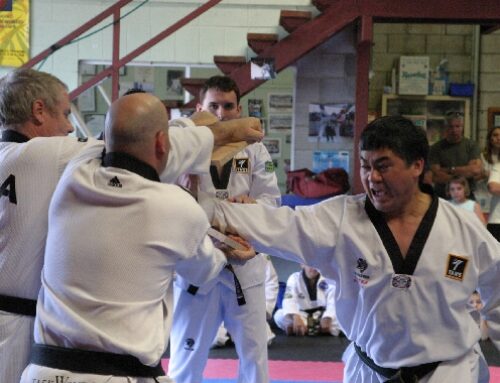
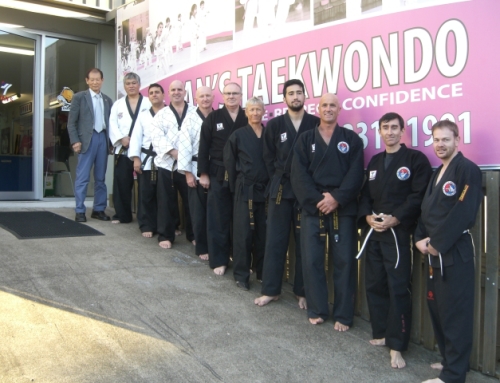
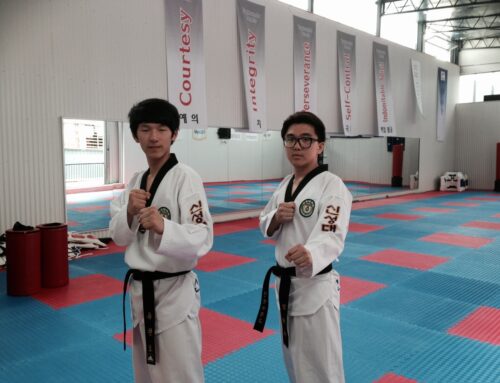
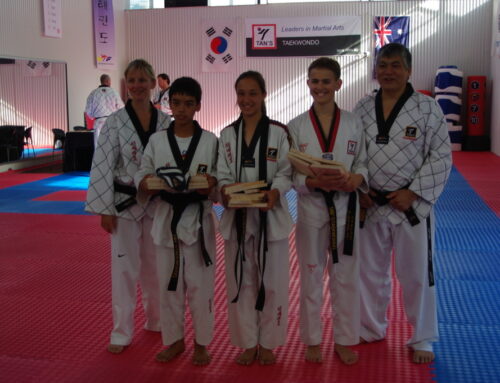

Leave A Comment